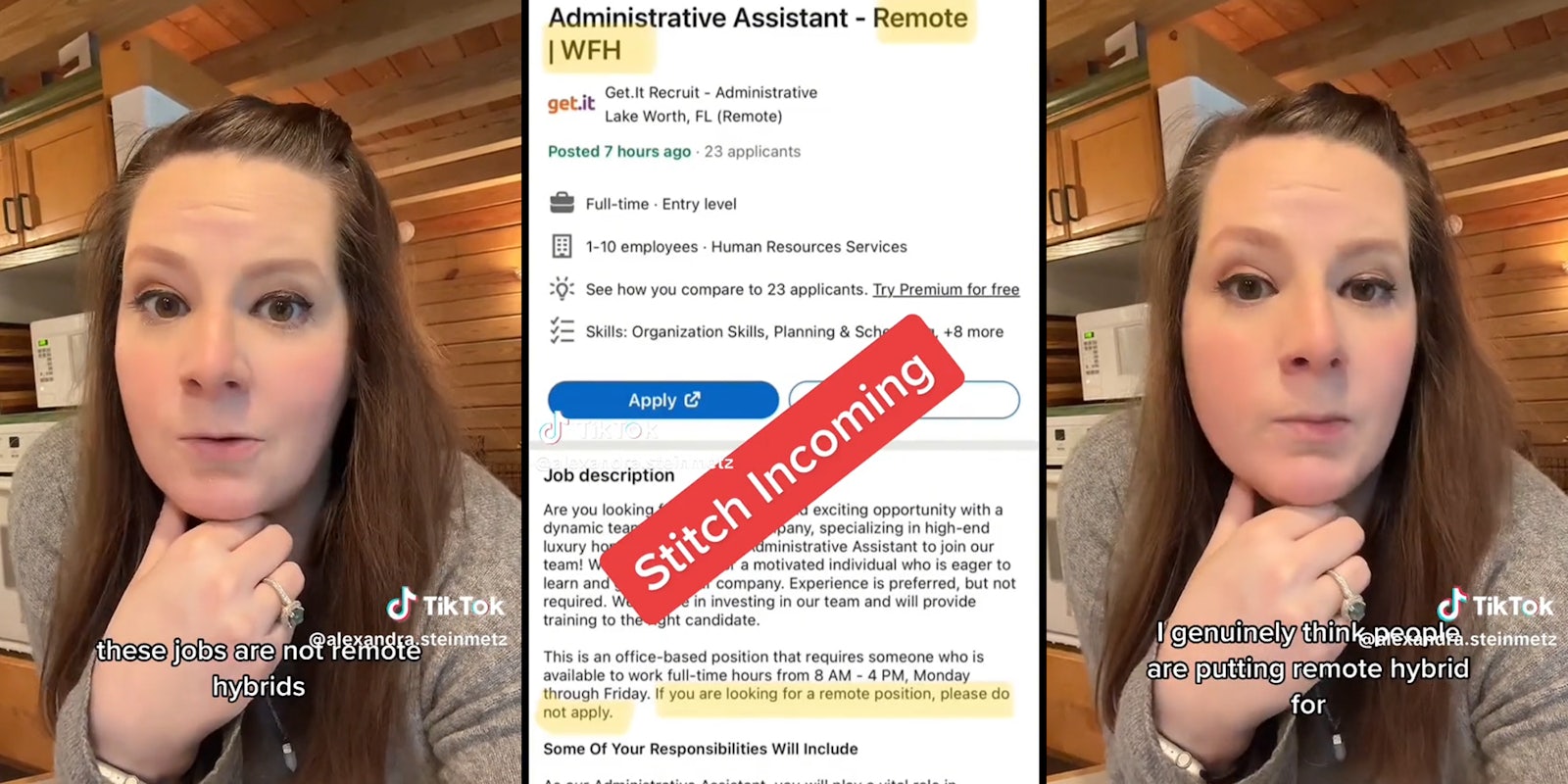The COVID-19 pandemic brought with it an increase in remote work. After years of being forced to go into an office five days a week, workers quickly took to the work-from-home lifestyle. Employees reported higher productivity and increased efficiency while enjoying comforts like shopping, the ability to take on other work, and more.
However, as the pandemic wanes and society returns to a semblance of normalcy, more employers are attempting to call remote workers back into the office.
Reasons for this return to the office differ. Some employers report that remote workers are less productive than in-office workers, a claim largely unsupported by data. Others say that employers simply want a return on investment for pricey office space, as remote work means much of those spaces are going unused.
No matter the reason, remote workers aren’t having it. Some workers are simply refusing to return to the office, while others are trying to find new work at a job that allows them to work remotely or offers a hybrid option.
However, these remote/hybrid job postings may not always be as they seem, as TikTok user Alexandra (@alexandra.steinmetz) details in a video with over 106,000 views as of Friday.
@alexandra.steinmetz #stitch with @humorousresources applying for jobs is a full time job. #jobscams #fakejobsonindeed ♬ original sound – alexandra.steinmetz
In the video, Alexandra claims that she applied to two jobs in the last six months that were listed as “hybrid remote.”
In both cases, she was asked if she’d be willing to come into the office 5 days a week. The office is an hour away from where Alexandra lives.
“In both instances I let the person know, ‘Well, it says ‘hybrid remote,’ so I’m definitely willing to drive in a couple days a week, but I figured I’d be working from home part-time as well,’” she recalls.
“One person never got back to me after that,” she continues. “And the other said, ‘Oh, you know, that was a mistake on our part. We’re really sorry to waste your time. I’m going to repost [the job listing] and make sure it doesn’t say ‘work from home’ anymore.”
“She reposted it the next day — and it still said ‘work from home,’” Alexandra concludes. “I don’t think it’s proofreading. I genuinely think people are putting ‘remote’/’hybrid’ for these jobs that are not ‘remote’/’hybrid’ so they can get more applicants.”
What Alexandra describes is a phenomenon that has been present since the remote work boom. In June 2022, author Alison Green wrote an article for Slate detailing numerous cases of this exact situation, with employers lying about fully or partially remote positions.
“Some of this is caused by employers who really mean ‘you can partially work from home’ but for some reason list those jobs as fully remote (possibly because of the limitations of electronic application systems),” Green details. “But other times the job isn’t even partly remote. Other employers will consider remote work for candidates who aren’t located near their office—but if you are, you’ll be expected to come in every day.”
Green speculates, as Alexandra did, that one reason an employer would do this is to attract more applicants.
There’s also a distinct possibility that companies aren’t actually hiring.
In an article last month for the Wall Street Journal, writer Te-Ping Chen surveyed data from numerous companies that admitted they were not actually hiring despite having active job listings.
“In a survey of more than 1,000 hiring managers last summer, 27% reported having job postings up for more than four months,” explains Chen. “Among those who said they advertised job postings that they weren’t actively trying to fill, close to half said they kept the ads up to give the impression the company was growing…”
In the comments section of Alexandra’s video, users shared their own thoughts on the issue.
“They absolutely are. I’ve applied to dozens that say remote/hybrid and when I spoke to a person they all said that the job is not remote,” a user said.
“Remote-hybrid now means ‘you shouldn’t take time off, you can just work from home that day’ and ‘don’t come in if you’re sick, work from home instead,’” another added.
“Companies are moving on, acting like the past few years didn’t happen,” shared a third. “They ignore that WFH was actually successful & efficient.”
We’ve reached out to Alexandra via email.
Update 7:18am CT, Apr. 23: In an email to the Daily Dot, Alexandra says she “work[s] in marketing and has successfully worked from home for two and a half years.”
Searching for a job has led her to many of these fake-remote positions.
“I would say that I’ve applied to 10 or so ‘remote]’ hybrid jobs that ended up being a lie later on in the process,” she detailed. “Lately, I’ve also seen several postings that I’ll highlight as [having] remote work capabilities, that will change the listing to ‘temporarily remote’ later.”



